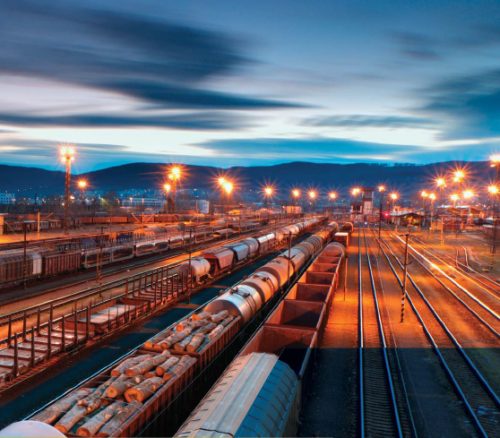Whiting Corporation is your trusted partner for comprehensive lifting equipment for rail transport operations and freight operations. This article delves into the critical aspects, safety protocols, challenges, and innovations in rail and train operations.
Rail transport operations are pivotal for the efficient conveyance of goods and people across diverse sectors. With its rich history and established infrastructure, rail transportation remains a reliable and cost-effective mode of transit.
Efficient rail and freight operations are integral to business success, ensuring timely delivery of goods to meet consumer demands and maintain a competitive advantage. Advances in technology have revolutionized rail and train operations, enabling safer, faster, and more efficient transport. Through the integration of digital solutions, rail operators can monitor performance, track maintenance needs, and address issues proactively, minimizing downtime and boosting productivity.
Essential Elements of Rail Transport Operations
 Rail transport operations encompass essential elements that facilitate the smooth functioning of the rail system. These include train scheduling and dispatching, freight operations, and maintenance and repair of railcar equipment.
Rail transport operations encompass essential elements that facilitate the smooth functioning of the rail system. These include train scheduling and dispatching, freight operations, and maintenance and repair of railcar equipment.
Train operations, a fundamental aspect, involves organizing the movement of trains for efficient, timely transportation. This process determines train routes, departure and arrival times, and resource allocation, thereby optimizing capacity and enhancing operational efficiency.
Freight operations, another crucial component, are vital for economic growth and trade. Efficient logistics management ensures goods are transported swiftly, reliably, and cost-effectively within the scope of rail transport operations.
Maintenance and repair of railcar equipment ensures safety and reliability of rail and train operations. Proactive maintenance practices prevent accidents, ensure smooth operations, and extend the lifespan of the railway infrastructure.
Safety Protocols in Rail Operations
Safety is paramount in rail transport operations and freight operations. Strict safety protocols and regulations ensure activities are conducted in a standardized, secure manner. Rail personnel undergo extensive training and certification to handle various train operations, minimizing the risk of accidents and effectively responding to potential safety concerns.
At Whiting Corporation, we prioritize safety in all our offerings. Our products and solutions adhere to the highest safety standards, ensuring reliable and secure performance in all rail and freight operations.
Challenges and Innovations in Rail Operations
While efficient rail transport operations and freight operations are vital for logistics and supply chains, the industry faces challenges that require innovative solutions. Key areas of focus include addressing capacity constraints, implementing advanced signaling systems, and adopting sustainable practices in train operations.
Rail operators are investing in infrastructure upgrades and adopting advanced technologies to enhance capacity and accommodate increasing freight volumes. They are also implementing advanced signaling technologies, such as Positive Train Control (PTC) systems, to monitor train operations, prevent collisions, and enhance safety.
Rail operators are also striving to reduce their carbon footprint and adopt sustainable practices. Initiatives include investing in energy-efficient locomotives, exploring alternative fuel options, and implementing measures to minimize emissions. These efforts contribute to a greener rail transport operations system.
As the rail industry evolves, these areas of focus will continue to drive efficiency, improve safety, and promote sustainability in rail and train operations.
